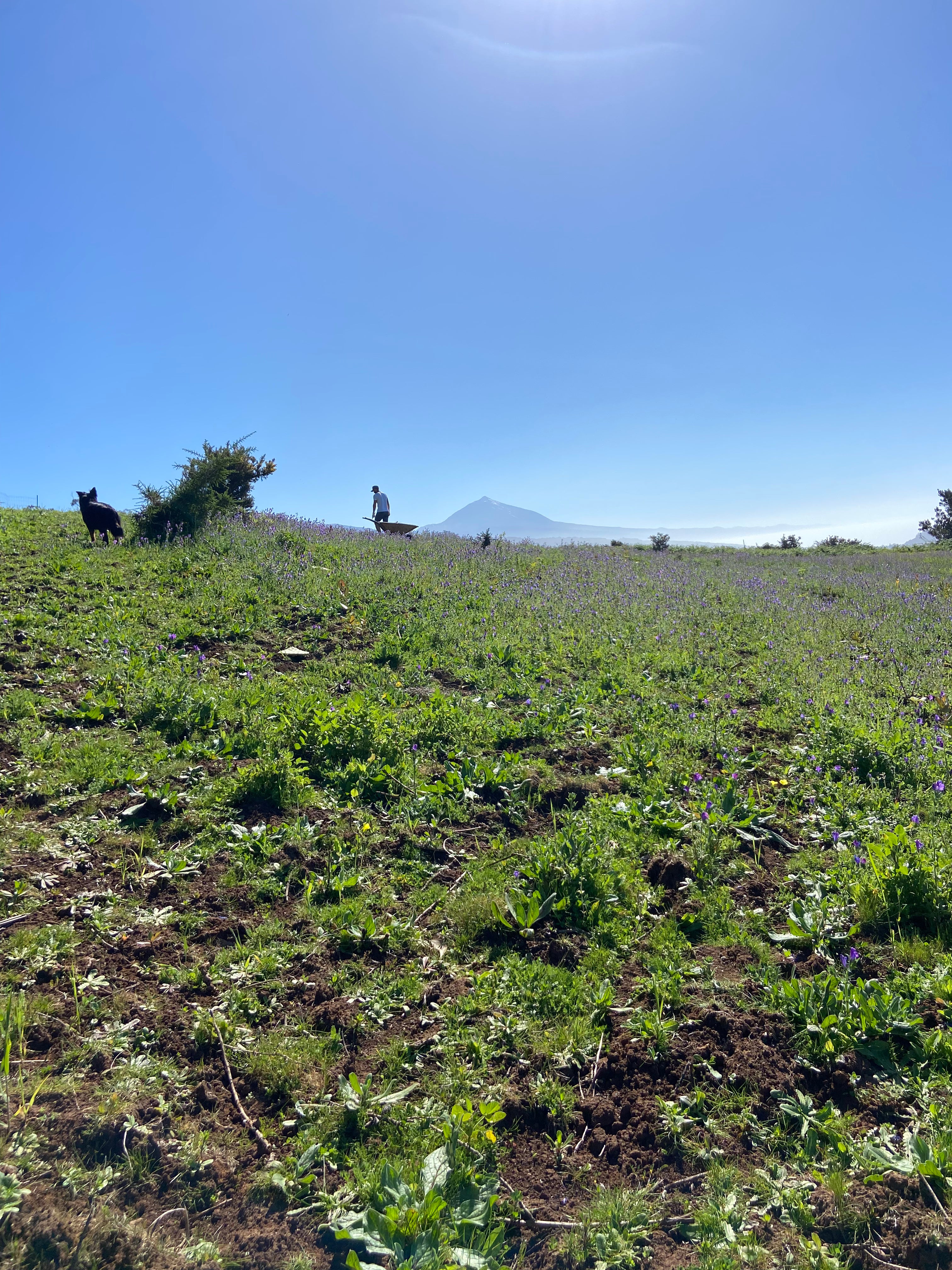Unisex SUMMIT overshirt
Unisex SUMMIT overshirt
Every garment you buy at MIA plants a tree through our collaboration with the LILO Project
Couldn't load pickup availability
"Soft, cozy and elegant . This Overshirt has been a success for everyday wear all year long."
Technical description:
Molletone fabric shirt. Open shirt collar (designed for all unisex body types), with false yoke on the back that gives it greater structure. Metal snap buttons on cuffs and front. With two pleats on the cuffs and two flap pockets on the front.
Buttons: recycled cotton
Fabric and yarn: 100% organic cotton. GOTS certified.
Made in our workshop, on the Island of Tenerife, Spain.
Emilio wears a size M and María wears a size S.
Approximate measurements:
XS:
-length from front shoulder 66cm (once washed it shrinks 2cm= 65cm )
-front width from armhole under arm 52cm
-sleeve length from shoulder 49 cm (once washed it shrinks 2cm= 48cm )
S:
-front width from armhole under arm 54cm
-sleeve length from shoulder 50cm (once washed it shrinks 2cm= 48cm )
M:
-length from front shoulder 68cm (once washed it shrinks 2cm= 66cm )
-front width from armhole under arm 56cm
-sleeve length from shoulder 51cm (once washed it shrinks 2cm= 49cm )
L:
-length from front shoulder 69cm (shrinks 2cm= 67cm )
-front width from armhole under arm 58cm
-sleeve length from shoulder 52cm (shrinks 2cm= 50cm )
-front width from armhole under arm 60 cm
-sleeve length from shoulder 53cm (once washed it shrinks 2cm= 48cm )
Organic Cotton: What is GOTS Certificate?
Organic cotton is produced without pesticides and synthetic fertilizers. Therefore, in the process from the cultivation of the cotton seed until the fabric is made, there is no labor or environmental exploitation. In this way, we continue with this philosophy by making the entire garment in our workshop in Tenerife. To learn more about the materials we use in our production, you can go to HOW? → MATERIALS on our website.
A garment, a tree
A garment, a tree
MIA, agroforestry and LILO

Since our beginnings we have always been clear that to be a regenerative enterprise, we had to find a way to integrate the manufacturing processes of our garments into the agricultural business fabric.
So that the garments would once again nourish the land and its communities.
“ With the LILO project we mitigate the environmental risks of our production while managing to positively impact Canarian society and its ecosystems.
With the agroforestry systems that we implement, we not only achieve sustainable development and the reduction of CO2 emissions in business activity, but we go one step further; We can actively help in the creation of systems and processes that regenerate our lands, that enrich them and add more value to the current one.
And we are achieving this through fashion, on a large scale and with healthy entrepreneurship; something that seemed very difficult to achieve a few years ago, because of what the term fashion meant thanks to fast fashion. "
----
Why the LILO Project?
The LILO project (Las Islas de Las Oportunidades) is a venture that is based on carrying out agroforestry and environmental education actions around the Canary Islands and the world.
The basic idea of the project is to find, improve and share sustainable solutions to the current scarcity of resources and dependence on food imports in different parts of the world.
In this way, productive natural systems are generated, capable of sustaining themselves economically while regenerating soil and water resources.
Ensuring wealth for current and future generations.
This is achieved by the LILO Project through the implementation of Natural Productive Systems such as its Integrated Poultry Systems that combine Agroforestry, Poultry Farming and Composting.
Through the combination of these three elements, the earth is worked from a three-dimensional point of view. Where the capacity of the land is no longer measured in square meters, but rather work is done and benefits are received from the depths of the subsoil to the highest canopy of the trees in the system. Thus being able to offer a greater return and ecosystem solutions than agriculture or any current conventional production model.
Today, MIA is committed to allocating the equivalent of one tree planted for each garment sold.
“It is important to note that, today, the MÍA project would not have the same impact without the joint collaboration with the LILO Project.
The added value that we offer to our final consumer and, therefore, to society, is that we manage to give continuity to our production cycle by working on regeneration.
In 2022 we planted more than 800 trees alongside the LILO Project where more than 100 could be planted thanks to the land obtained as a result of the direct relationships generated with MIA clients. And much of that tree planting started with some of the compost generated with the scraps from MIA's 2021 production.
Even so, we want to continue scaling these numbers and we are working to have a greater impact. We have set the company's annual goal of planting 4,000 trees by the end of the year.
At the end of the day, we want our community to see and understand that through cooperation and partnership between projects that strive for the common good, we can generate an exponential and unimaginable positive impact.”
María "Mia", designer and founder.
























